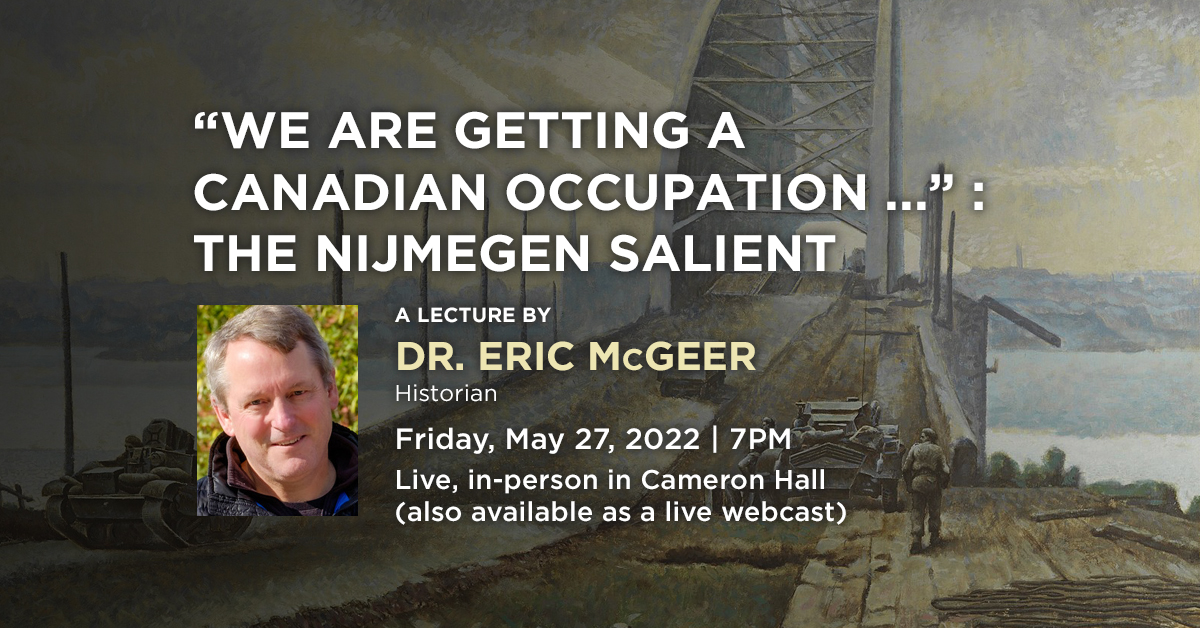
- This event has passed.
“We are getting a Canadian occupation …” : The Nijmegen Salient 1944-45

Donations at the door or when you watch online are voluntary and only partially cover program costs. If you agree that continuing education is worth the investment, We’d love to hear from you.
A new browser tab will open the Yorkminster Park Canada Helps donation page, please select YP Speakers Series from the dropdown menu.
The peoples under Nazi occupation longed for the arrival of the Allied armies, but liberation could prove to be an ordeal in itself. Few places knew the mixed blessings of liberation better than the Dutch city of Nijmegen. Accidentally yet heavily bombed by the Americans in February 1944, and the scene of vicious fighting during Operation Market Garden the following September, Nijmegen found itself on the frontline for seven long months. Although free of the Germans, the city was occupied by another foreign army, the soldiers of First Canadian Army who held the Nijmegen Salient during the winter of 1944-45. Emerging from a long occupation, the citizens of Nijmegen endured privation, cold, and constant shelling while contemplating the uncertainties ahead. Emerging from the battles of the Scheldt, the Canadians rested and refitted for the final assault into Germany. With reference to official documents, the paintings of Alex Colville, and especially the diaries and accounts of Nijmegen’s inhabitants, this lecture will discuss the comparative experience of Canadian soldiers and Dutch civilians in a static and trying phase of the war rich in human interest.
This lecture is a live, in-person event in Cameron Hall. You do not need to pre-register to attend — just show up.
BIOGRAPHY:
Eric McGeer taught Latin and history at St Clement’s School for many years. Originally a specialist in Byzantine history, he turned to Canadian military history and is the author of several books on the subject. He is currently writing a book on the experiences and relations of the Dutch and Canadians in the Nijmegen Salient during the winter of 1944-45.

